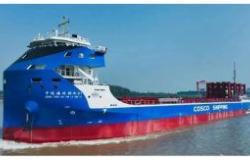Decongestant nasal sprays can give dependence? In a certain sense, yes: those who use them incorrectly (i.e. for more than 3-4 days maximum and several times a day) risk developing the so-called «medicamentous rhinitis» (or rebound congestion), a serious and annoying condition. In practice, the more you use the spray, the more your nose closes and it is natural to increase the dosage to feel better. On the contrary, treatment must be suspended immediately and replaced with saline sprays or, if necessary, corticosteroids.
Physical dependence
It’s not a real addiction – explains Jonathan Bernstein, an allergist and immunologist from Cincinnati, on New York Times -, because it does not change the chemistry of the brain, but the continuous use of decongestants (sprays or even nasal drops) it increases the sensation of suffocation because it worsens the obstruction of the paranasal sinuses. Physical dependence is therefore a real phenomenon because, if you don’t use the spray, it feels like you can’t breathe.
Blood vessels
In practice, decongestants (also called vasoconstrictors) temporarily limit blood flow in the nasal passages, narrowing the blood vessels so that the air has more space to circulate. The risk is that the blood vessels “get used to it”, swelling as soon as you stop using the spray and making the airways even narrower. The advice is therefore to use them for temporary conditions, such as a normal cold, and not for prolonged ailments such as allergies or chronic congestion, also because they can cause systemic side effects such as hypertension, heart rhythm changes, urinary disorders, anxiety, insomnia, headache, restlessness. They should be used with caution in heart patients or the elderly and are reserved for people aged 12 and over.
Read the instructions
In the United States, rebound congestion is quite widespread and it is estimated that 9% of people who see an ENT have this problem. It is essential to follow the instructions for use described in the information leaflets: Most habit-forming sprays have a recommended limit of two sprays per day for up to three days. If you go beyond that, there is a risk of rebound congestion. The sprays to pay attention to are those classified as nasal decongestants, which contain active ingredients such as phenylephrine, ephedrine, pseudoephedrine, naphazoline, oxymetazoline, xylometazoline.
Steroid sprays
Not all nasal sprays pose a risk of addiction. Those that contain steroids (such as mometasone or fluticasone) They are good for treating long-term congestion because they don’t cause congestion medicamentous rhinitis. Like decongestants, steroid sprays reduce nasal inflammation but do not have as immediate an effect. You must therefore be patient for a few days before you can breathe normally again. Also Sprays containing antihistamines are safe to use and are not addictive: block histamine receptors which cause itching, sneezing and watery eyes.
Antihistamine sprays
The antihistamine sprays They usually eliminate allergy symptoms more quickly than steroid sprays, but if your nose is stuffy, steroids are the best solution because they act directly on the inflammation. In some cases it is possible to combine steroids and antihistamines: both can also be used for a prolonged time, without risking rebound congestion. Saline sprays are also effective: they contain saline solution (usually based on salt and water) and not drugs. They can reduce dryness and help clear the nasal passages of particles or germs that cause inflammation.
Talk to your doctor
However, if the congestion does not resolve within a few days it is best to contact your doctor and then possibly to an allergist or ENT. In general, before using any medicine, including over-the-counter ones, it is best to ask your doctor for advice, also to avoid possible interference with other medicines you are taking.





